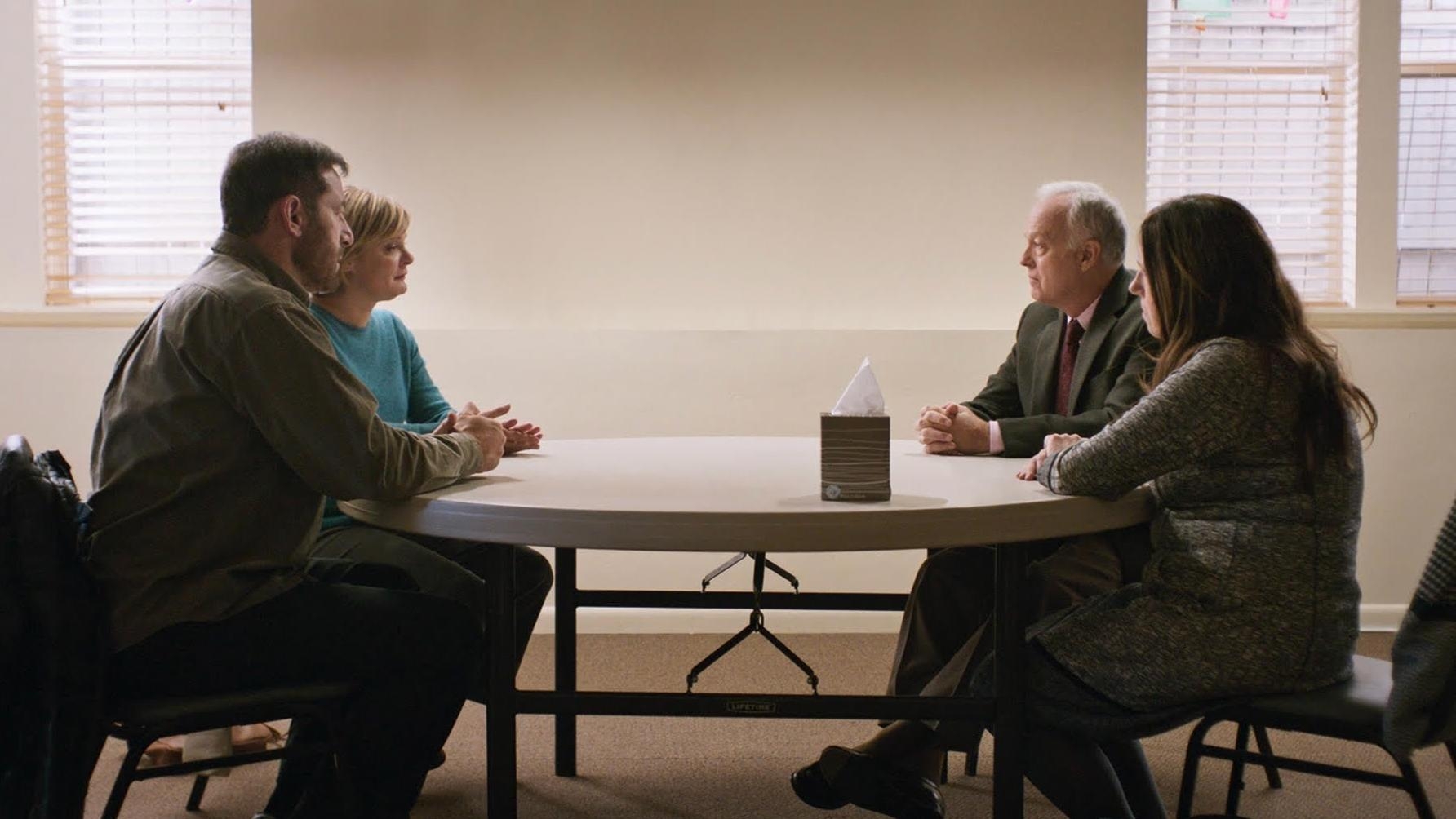The aftermath of a school shooting hangs over the stagey but well-acted Mass
Four excellent actors carry this un-cinematic drama about a meeting of bereaved parents

Is Mass the most un-cinematic movie of the year? Set largely in a single flat-looking room in the back of a church that could be anywhere in America, actor-turned-director Fran Kranz’s debut definitely isn’t much to look at. Two middle-class couples— Gail (Martha Plimpton) and Jay (Jason Isaacs), Linda (Ann Dowd) and Richard (Reed Birney)—have been brought together for a face-to-face meeting by a professional mediator; they spend most of the film sitting around a plastic table in ambient anonymity. The pacing is unhurried and more or less real-time. The dead air is tense and plentiful. At one point, something like 30 minutes passes without any of the characters getting up from their seat. In keeping with the theatricality, they talk or, more often, monologue—not so much about subjects as around them.
There’s a fair amount to admire about the film, as the subjects Kranz has chosen for his first feature are ones that are, perversely, both delicate and heavy: grief, trauma, guilt. At the beginning, before either couple’s arrival, a couple of church volunteers, equal parts stagehands and chorus, set the scene. Will they need snacks? Probably not, but there’s a lot of them anyway. Where should the box of tissues go? Will the boy practicing piano upstairs be a distraction?
Awkwardness, missteps, and difficulties of communication establish the tone. The couples make their entrance, exchanging stilted greetings and stiff pleasantries. Linda has brought a vase of flowers that she arranged herself; one isn’t entirely sure whether this is a meaningful gesture or a faux pas. References are made to a past lawsuit, some possibly defamatory public statements on Jay’s part, letters sent by Gail, and the number years that have passed. The advice of therapists and counselors is quoted. Gradually, Mass reveals the backstory: a school shooting in which Linda and Richard’s teenage son, Hayden, killed 10 students before committing suicide in the library. Jay and Gail’s son, Evan, was among the victims. That the boys didn’t know each other only adds to the apparent meaninglessness.
It’s a credit to Kranz’s screenplay that Mass doesn’t immediately devolve into shouting. Though Jay and Gail have spent years blaming Richard and Linda for their son’s death, it’s clear that they wouldn’t be here if they didn’t want to forgive them. Nonetheless, Jay (who’s become an anti-gun activist) does eventually launch into a litany of possible causes: America’s culture of violence and gun worship; online alienation and radicalization; psychopathy. Questions of parental obligation arise, too. Shouldn’t Linda and Richard have seen the obvious warning signs? Or isn’t it a parent’s duty to be the only one who doesn’t think their kid is a psycho?
The cast carries the film; Dowd, as Linda, is especially terrific. Yet the feeling that one is watching a latter-day teleplay is hard to shake: The unvisual, periodically clumsy direction never finds a way around the confined space or the ugly lighting. One can applaud Kranz’s restraint. Faced with long, talky scenes or limited locations, budding directors tend to go for amphetamine-addled performances, with actors pacing and gesticulating wildly. The body language here, however, is strictly realistic. But with every shot looking more or less the same, the result remains stifled and airless.